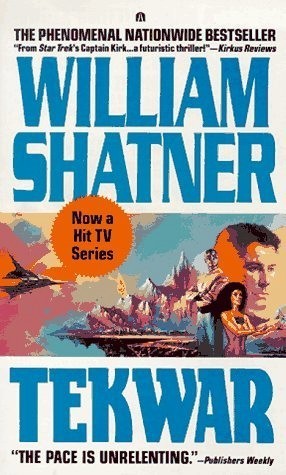What do you think?
Rate this book


307 pages, Mass Market Paperback
First published October 9, 1989
A sooty sea gull coughed once, took three lurching steps along the Boardwalk railing, teetered, fell over. Dingy wings flapping awkwardly, it went plummeting straight down to the rubbish-strewn beach twenty feet below. There was a thunk and a rattling when it hit.("Death of a seagull" was my favorite thing in the book. And it prepared me for the similarly gesticulation-heavy death scenes of minor human characters that followed.)
"The Cosmos Agency specializes in gathering little tidbits of information from hither and yon. And from yon came the news that that putz Winterguild had complained to the parole folks because you'd tipped him onto his toke."(Why give a character just one dialect? Give them three or four!)